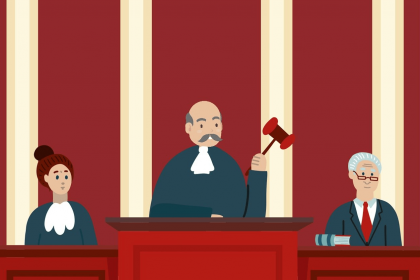Personal injuries can disrupt lives unexpectedly, bringing physical pain, emotional distress, and financial burdens. Navigating the aftermath of a personal injury requires a clear understanding of your rights and the steps needed to file a claim effectively, as well as the support of an experienced personal injury attorney in Fort Lauderdale. In Fort Lauderdale, Florida, a hustling and bustling city known for its beautiful beaches, lively nightlife, and busy streets, the chances of sustaining a personal injury are significant. Whether it’s a slip and fall at a popular restaurant, a car accident on a busy road, or an injury at a recreational venue, these incidents can be overwhelming.
This article aims to provide you with a comprehensive step-by-step approach to filing a personal injury claim in Fort Lauderdale, Florida, ensuring you are well-prepared to seek the compensation you deserve. From seeking immediate medical attention to gathering evidence and consulting with a knowledgeable attorney, this guide will equip you with the knowledge needed to navigate the complexities of personal injury claims in Fort Lauderdale effectively.
1. Seek Medical Attention and Document Injuries Related To the Accident in Fort Lauderdale, Florida:
The first and most important step in filing a personal injury claim is to seek immediate medical attention for your injuries. Obtaining medical treatment ensures your well-being and provides official documentation of your injuries. Your medical records will serve as critical evidence to support your claim later on.
2. Consider Possibly Reporting The Incident and Gathering Important Evidence:
Notify the appropriate parties about the incident that led to your injury as soon as possible. Depending on the nature of the accident, this may involve reporting it to law enforcement or notifying property owners or managers (if applicable). Additionally, gather any evidence that supports your claim—photographs of the scene, eyewitness statements, or video footage can all contribute to building a strong case.
3. Consult an Experienced Fort Lauderdale Personal Injury Lawyer:
To navigate the claims process smoothly and maximize your chances of obtaining fair compensation, consulting an experienced personal injury lawyer is highly recommended. They have expertise in dealing with insurance companies and negotiating settlements that accurately reflect the extent of your injuries and damages.
4. Work On Determining Liability:
Establishing liability is vital in any personal injury case. This requires proving that someone else’s negligence or intentional actions directly caused your injuries. Your lawyer will assess the evidence gathered from witnesses, reports, and experts – including accident reconstructionists – to determine who should be held responsible.
5. Prepare a Demand Letter:
Working closely with your attorney, you will prepare a demand letter—a written document that outlines your case, injuries, damages, and the compensation you seek. This letter will be sent to the at-fault party or their insurance company. It is crucial to include all relevant information and supporting documents in a structured, concise manner.
6. Negotiate Settlement:
Upon receiving your demand letter, the defendant’s insurance company will enter into settlement negotiations with your lawyer. These negotiations involve determining an appropriate amount of compensation for your pain and suffering, medical expenses (both current and future), lost wages, property damage, if applicable, and any other relevant damages.
7. File a Lawsuit (if Necessary):
Most personal injury cases are resolved through settlement negotiations. However, if a fair agreement cannot be reached, your lawyer may advise you to file a lawsuit. Filing a lawsuit initiates the litigation process and signals that you are prepared to pursue your claims through formal court proceedings if necessary.
8. Discovery and Pretrial:
In this stage of the legal process, both parties exchange information and evidence through pretrial investigations, known as discovery motions. Lawyers on both sides gather evidence from witnesses, experts’ depositions (recorded statements), interrogatories (written questions), and requests for admissions or documents.
9. Mediation or Trial:
Before proceeding to trial in court, many personal injury cases go through mediation—an alternative dispute resolution process wherein an independent third party facilitates negotiation between the involved parties with the goal of reaching an out-of-court settlement.
10. Settlement or Verdict:
Should mediation fail to yield satisfactory results or if one considers it inappropriate—whether due to liability issues or unfavorable compensation offered—an injured person may proceed with taking their case to trial in court before a judge and/or jury who render a verdict based on the presented evidence and arguments.
Fort Lauderdale Injury Claims Require Careful Navigation
Filing a personal injury claim requires careful navigation through multiple steps in an often complex legal process. Seeking proper medical attention promptly after getting injured is vital, but documenting evidence to support your claim is equally significant.
Engaging an experienced personal injury lawyer is highly recommended to ensure you understand your rights and maximize your chances of obtaining fair compensation for your injuries and damages.








